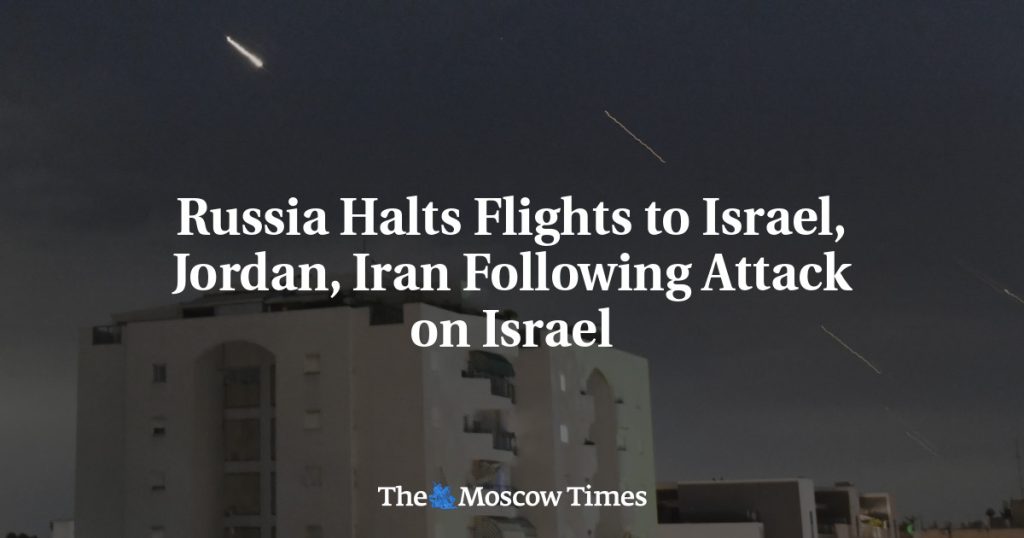Russia has suspended flights to Israel, Jordan, and Iraq following an unprecedented attack by Iran against Israel. The Iranian Revolutionary Guards Corps announced that they had launched drones and missiles towards military sites on Israeli territory in response to the destruction of its consulate building in Damascus earlier in the month. Russia’s civil aviation agency, Rosaviatsia, announced the suspension of flights to the three countries until restrictions are lifted. Dozens of Russian tourists are currently in Iran on organized tours, according to the Association of Tour Operators.
Israel’s army claimed to have shot down 99% of the drones and missiles with assistance from the United States and other allies, declaring the attack by Iran as “foiled.” Experts believe that the slow-moving drone attack on Saturday was intended to demonstrate power while allowing for potential diplomacy between the parties involved. Russia’s deputy representative to the UN, Dmitry Polyansky, expressed concerns about a new crisis in the Middle East, depending on the actions taken by the parties involved. The Russian Foreign Ministry advised against travel to the Middle East, particularly to Israel, Lebanon, and Palestine, urging restraint from both Iran and Israel.
Moscow has called for Iran and Israel to exercise restraint amid escalating tensions in the region, emphasizing the importance of maintaining stability in the Middle East. Russia has criticized Israel’s actions in the six-month conflict in Gaza, leading to strained relations between the two countries. Despite traditionally trying to maintain relations with major powers in the Middle East, including Iran and Israel, Russia has been strengthening military and political ties with Iran. Kremlin spokesman Dmitry Peskov stated that Russia has not been approached to mediate between the two rival nations. The situation in the Middle East is already unstable, and further escalation could have severe consequences.
This recent incident has raised concerns about a potential crisis in the Middle East as tensions between Iran and Israel escalate. Russia’s suspension of flights to Israel, Jordan, and Iraq reflects the seriousness of the situation. The exchange of attacks and counterattacks between Iran and Israel has the potential to destabilize the region further, prompting calls for restraint from all parties involved. The involvement of Russia, a key player in the region, adds another layer of complexity to the situation, particularly as Moscow has been strengthening ties with Iran despite strained relations with Israel.
The situation in the Middle East remains unpredictable, and the potential for further escalation is a cause for concern. Russia’s efforts to maintain relations with all major powers in the region, while also strengthening ties with Iran, highlight the complexity of the geopolitical landscape. The call for restraint from Russia and other international actors reflects a shared concern for maintaining stability in the region. The role of the United States and other allies in assisting Israel in thwarting the drone attack underscores the international dimension of the conflict and the potential for wider implications.
As the situation continues to unfold, the need for diplomatic solutions and de-escalation efforts becomes increasingly urgent. The possibility of a new crisis in the Middle East looms large, with the actions of Iran and Israel likely to determine the course of events. Russia’s suspension of flights to the affected countries underscores the seriousness of the situation and the potential for further disruptions. The international community, including Russia, must work together to prevent further escalation and find a peaceful resolution to the conflict between Iran and Israel.


